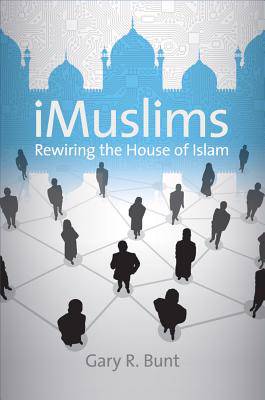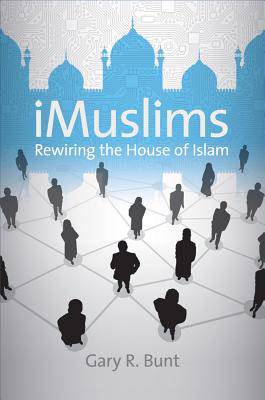
- Afhalen na 1 uur in een winkel met voorraad
- Gratis thuislevering in België vanaf € 30
- Ruim aanbod met 7 miljoen producten
- Afhalen na 1 uur in een winkel met voorraad
- Gratis thuislevering in België vanaf € 30
- Ruim aanbod met 7 miljoen producten
Zoeken
Omschrijving
Exploring the increasing impact of the Internet on Muslims around the world, this book sheds new light on the nature of contemporary Islamic discourse, identity, and community.
The Internet has profoundly shaped how both Muslims and non-Muslims perceive Islam and how Islamic societies and networks are evolving and shifting in the twenty-first century, says Gary Bunt. While Islamic society has deep historical patterns of global exchange, the Internet has transformed how many Muslims practice the duties and rituals of Islam. A place of religious instruction may exist solely in the virtual world, for example, or a community may gather only online. Drawing on more than a decade of online research, Bunt shows how social-networking sites, blogs, and other "cyber-Islamic environments" have exposed Muslims to new influences outside the traditional spheres of Islamic knowledge and authority. Furthermore, the Internet has dramatically influenced forms of Islamic activism and radicalization, including jihad-oriented campaigns by networks such as al-Qaeda.
By surveying the broad spectrum of approaches used to present dimensions of Islamic social, spiritual, and political life on the Internet, iMuslims encourages diverse understandings of online Islam and of Islam generally.
The Internet has profoundly shaped how both Muslims and non-Muslims perceive Islam and how Islamic societies and networks are evolving and shifting in the twenty-first century, says Gary Bunt. While Islamic society has deep historical patterns of global exchange, the Internet has transformed how many Muslims practice the duties and rituals of Islam. A place of religious instruction may exist solely in the virtual world, for example, or a community may gather only online. Drawing on more than a decade of online research, Bunt shows how social-networking sites, blogs, and other "cyber-Islamic environments" have exposed Muslims to new influences outside the traditional spheres of Islamic knowledge and authority. Furthermore, the Internet has dramatically influenced forms of Islamic activism and radicalization, including jihad-oriented campaigns by networks such as al-Qaeda.
By surveying the broad spectrum of approaches used to present dimensions of Islamic social, spiritual, and political life on the Internet, iMuslims encourages diverse understandings of online Islam and of Islam generally.
Specificaties
Betrokkenen
- Auteur(s):
- Uitgeverij:
Inhoud
- Aantal bladzijden:
- 374
- Taal:
- Engels
- Reeks:
Eigenschappen
- Productcode (EAN):
- 9780807859667
- Verschijningsdatum:
- 30/04/2009
- Uitvoering:
- Paperback
- Formaat:
- Trade paperback (VS)
- Afmetingen:
- 155 mm x 231 mm
- Gewicht:
- 544 g

Alleen bij Standaard Boekhandel
+ 129 punten op je klantenkaart van Standaard Boekhandel
Beoordelingen
We publiceren alleen reviews die voldoen aan de voorwaarden voor reviews. Bekijk onze voorwaarden voor reviews.











